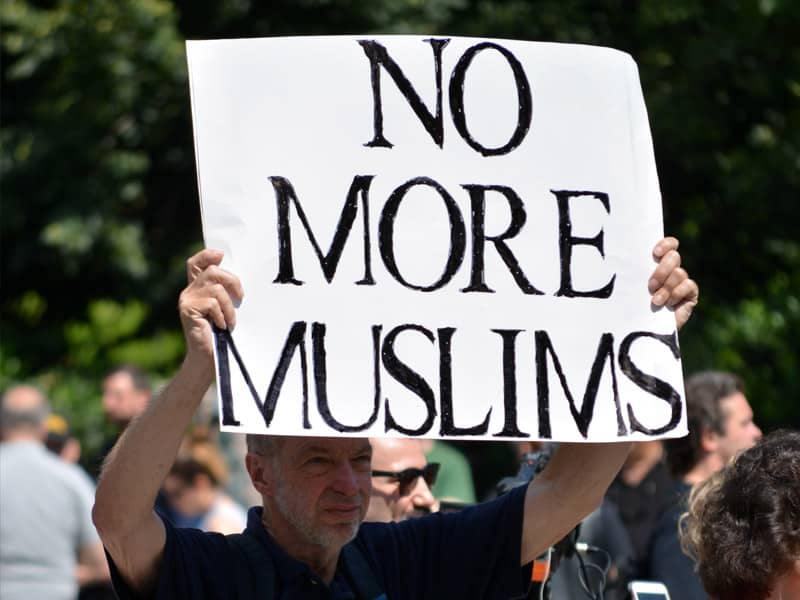Apart from the firepower that America brought to destroy them, one of the main reasons they collapsed was that even the Pushtun tribes from whom they came considered them upstarts of a particularly unpleasant and intolerant nature. Had the Pushtun supported them, it would have been a longer and bloodier conflict.
And once Pakistan, the patron of the Taliban, withdrew its support on the ground, the Taliban could not sustain their rule.
But has the system that produced the Taliban also been affected by America's war? This is the problematic question.
The word "taliban" simply refers to students of religious schools called "madrassahs." Both words, "talib" (the singular form of "taliban") and "madrassah," are now internationally recognized, although not always used correctly. John Walker, described as an American Taliban, is, of course, an American talib.
A madrassah consists of young Muslim boys -- starting as early as 4 or 5 years old -- learning the Quran. It would be similar to a Jewish school teaching the Torah, or a Christian school teaching the Bible. A good religious school does not pose a problem for society, and a good Islamic school is no exception. The problem is what is taught in the madrassah.
Having talked to people running these schools in Pakistan, I concluded the problem is with the syllabus and the lack of extracurricular activity. With the existing structure, students do little more than rote memorization of the Quran. Students learn that "jihad," or holy war, is an essential part of faith. They are thus primed to finish school and look to join any jihad being fought in the region.
When I argued with the teachers in madrassahs about the need to study other great thinkers like Sigmund Freud or Max Weber, I was met with an uncomprehending stare. I realized the depth of the problem when I even received a negative response to my suggestion that Muslim scholars such as historian Ibn Khaldun or mystic poet Mowlana Rumi be taught.
"Islam is a religion of peace and understanding," I said, quoting the Quran. One verse says you must be tolerant of others. Another tells us to look at the tribes and the nations around us and appreciate their diversity.
Muslims like Khaldun and Rumi achieved great heights in their fields while living and teaching the universal compassion that is Islam.
Yet we know that the Taliban acted to challenge this very interpretation of Islam. Women and minorities were harassed and treated as second-class citizens, not even as Muslims.
It is estimated there are about 50,000 madrassahs in Pakistan alone. This may be a rough and ready figure, but it illustrates the scale of the problem. Unless what is taught and how it is taught is seriously changed, the mentality and behavior that we associate with the Taliban will continue to be reflected in the students that emerge from these schools.
For the vast majority of Pakistanis, there is no other educational choice but the madrassah. Very few can afford expensive English-speaking, Westernized schools located in the larger cities. So the madrassah plays an indispensable role in the life of the community that cannot be wished away.
The question of Islamic education is a poignant one for a Muslim. A Muslim is aware of the great Islamic tradition of respect for learning.
"Go unto China to seek knowledge," the prophet said in the seventh century, when China was little more than symbolic of a civilization that few could think of visiting. It represented an alien and exotic culture. Yet a good Muslim must acquire knowledge from as far away as China to fulfill the obligation contained in his or her faith.
If this philosophy were repeated in the madrassahs, along with the teaching of the great Muslim scholars such as Khaldun and Rumi, the students would be more in tune with mainstream Islam.
They would understand that jihad first and foremost means to elevate oneself to a higher moral position, and not to inflict violence on others. They would appreciate the need to be kind and compassionate to the less privileged. As grown men, they would not be so inclined to treat women and minorities as the Taliban treated them in Afghanistan. Men like Osama bin Laden would find few supporters among such students.
If extracurricular activities included sports and debates, allowing competition with other schools, it would also channel their energies more constructively. There is nothing like extracurricular activity to develop young personalities and make them sociable.
Teachers too should be provided the opportunity to participate in training programs, both within and outside the country. Muslim and non-Muslim teachers from around the world should be encouraged to interact with madrassah teachers. This interaction would be of mutual benefit and teach both something of their profession.
With the reformation of the madrassah in Muslim society, the chances for greater understanding between Islam and the West are dramatically improved.

